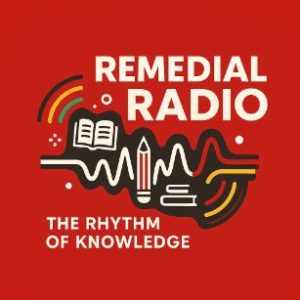Learn how to identify and use nouns from the A-Wa class in Kiswahili. This guide provides clear explanations, translations, and sentence examples for students learning Kiswahili.
Introduction
In Kiswahili, nouns are grouped into different classes, called ngeli. These classes help determine how nouns behave in sentences, especially when it comes to agreement with verbs and adjectives.
One of the easiest and most common noun classes for beginners is the A-Wa class. This class mainly contains nouns that refer to people.
In this guide, we will explore:
- What the A-Wa class is
- Examples of A-Wa nouns
- How to form sentences using these nouns
- Differences between singular and plural
- FAQs to help reinforce your learning
What is the A-Wa Class?
The A-Wa noun class in Kiswahili includes nouns that refer to human beings. It shows a clear distinction between singular and plural forms.
- Singular form starts with “M-” or “Mu-”
- Plural form starts with “Wa-”
💡 Think of it as:
- One person: uses “M-“
- Many people: use “Wa-“
Examples of A-Wa Class Nouns
Here are some common examples of A-Wa nouns:
| Singular (M-/Mu-) | Plural (Wa-) | English Translation |
| mtu | watu | person → people |
| mwanafunzi | wanafunzi | student → students |
| mwalimu | walimu | teacher → teachers |
| mgonjwa | wagonjwa | patient → patients |
| mgeni | wageni | guest/stranger → guests |
| mzee | wazee | elder → elders |
| mfanyakazi | wafanyakazi | worker → workers |
| msichana | wasichana | girl → girls |
How A-Wa Nouns Work in Sentences
Verbs must agree with the subject noun, and this agreement changes depending on whether the noun is singular or plural.
Singular Sentence Examples (using “A-”)
- Mwanafunzi anaandika barua.
(The student is writing a letter.) - Mgeni anakula chakula.
(The visitor is eating food.)
In these sentences, “ana-” is used because the subject is singular.
Plural Sentence Examples (using “Wa-”)
- Wanafunzi wanaandika barua.
(The students are writing letters.) - Wageni wanakula chakula.
(The visitors are eating food.)
Here, “wana-” is used because the subject is plural.
✅ Tip: If the noun is plural and belongs to the A-Wa class, always change the verb prefix to match.
Occupational Nouns from Verbs in A-Wa Class
Many people’s job titles or roles are formed by adding “M-” for singular or “Wa-” for plural to verbs.
| Verb Root | A-Wa Noun (Singular / Plural) | English Meaning |
| -fundisha | mwalimu / walimu | teacher / teachers |
| -imba | mwimbaji / waimbaji | singer / singers |
| -fanya kazi | mfanyakazi / wafanyakazi | worker / workers |
| -uza | muuzaji / wauzaji | seller / sellers |
Why is the A-Wa Class Important?
- Everyday use: Most Kiswahili conversations involve people – students, teachers, workers, etc.
- Easy to identify: The M-/Wa- pattern is consistent and simple to spot.
- Grammar foundation: Learning this class helps you form correct verb-noun agreements in Kiswahili sentences.
Summary
The A-Wa noun class in Kiswahili is essential for beginners. It includes nouns that refer to people, and it’s easy to use because of its clear singular (M-) and plural (Wa-) patterns.
Mastering this noun class helps you:
- Build proper Kiswahili sentences
- Understand subject-verb agreement
- Expand your vocabulary with people-related words
FAQs: A-Wa Noun Class
1. What does A-Wa mean in Kiswahili grammar?
A-Wa refers to the noun class where singular nouns often begin with “M-” and their plural forms with “Wa-”. These usually describe people.
2. Are animals included in the A-Wa class?
Generally, no. The A-Wa class is mainly for people. Animals often fall into other noun classes like N-N or Ji-Ma depending on their form.
3. Why is verb agreement important in Kiswahili?
Because in Kiswahili, the verb must match the subject in number and noun class. In A-Wa, “ana-” becomes “wana-” in plural.
4. How can I quickly know if a noun is in A-Wa class?
If it refers to a person and starts with “M-” or “Mu-” (singular), and its plural is “Wa-”, it’s in the A-Wa class.
5. Is ‘mgeni’ (visitor) an A-Wa noun?
Yes.
- Singular: mgeni
- Plural: wageni
It refers to people and follows the M-/Wa- pattern.
Would you like this converted into a worksheet or a printable class resource? I can also provide interactive exercises or quiz questions based on this lesson.


Leave a Reply